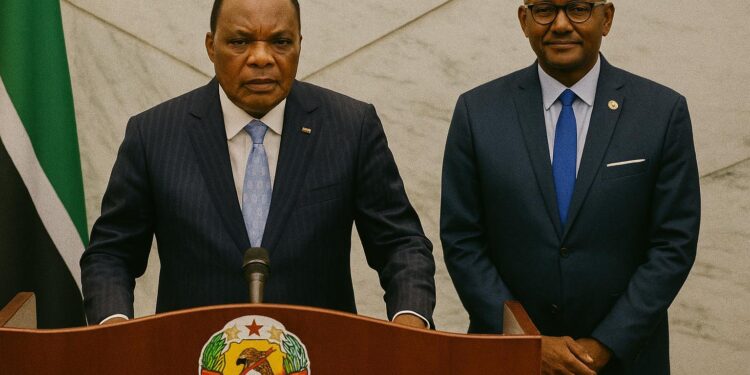Diplomatic Mobilisation Intensifies
With the October 2025 vote for the new Director-General of the United Nations Educational, Scientific and Cultural Organization approaching, Brazzaville has deployed a level of diplomatic energy seldom seen since its 2015 climate advocacy at COP 21. President Denis Sassou Nguesso’s appointment of Edouard Firmin Matoko as roving ambassador has been coupled with a whirlwind of ministerial visits designed to secure endorsements from members of UNESCO’s Executive Board, the body that will short-list candidates before forwarding a single name to the General Conference (UNESCO Executive Board records, March 2025).
Candidate Matoko’s Institutional Credibility
Matoko’s candidacy is strengthened by three decades of internal UNESCO experience, most recently as Assistant Director-General for Priority Africa and External Relations. Insiders recall his stewardship of programmes that expanded Science, Technology, Engineering and Mathematics scholarships on the continent and improved the visibility of African heritage sites (interviews with former UNESCO officials, April 2024). His technocratic reputation enables Brazzaville to frame the bid less as a national quest than as a professional continuum, a nuance that resonates with delegations wary of overt politicisation.
Regional Consensus Building Across Africa
Foreign Minister Jean-Claude Gakosso’s July tour—spanning Luanda, Cape Town, Maputo, Gaborone, Port-Louis and Addis-Ababa—underscored Congo’s intent to knit together a pan-African consensus before the race globalises. Statements from the Angolan and South African presidencies suggest an emerging bloc strategy within the Southern African Development Community to align votes behind a single sub-Saharan figure, thereby avoiding the fragmentation that weakened African influence during the 2017 contest (SADC communiqués, July 2025). By framing Matoko as an African, francophone and multilateralist bridge, Brazzaville taps into continental narratives of equitable representation at the apex of UN agencies.
Global Geopolitics of Multilateral Leadership
Yet UNESCO elections are rarely confined to regional arithmetic. Diplomatic observers in Paris emphasise that major funders—among them Japan, Germany and the United States—closely correlate their support with managerial reform pledges and budgetary discipline (policy brief, Institut Français des Relations Internationales, May 2025). Matoko has therefore articulated a platform that pairs Africa-centric priorities with commitments to transparency and digital transformation, aiming to reassure traditional donors without alienating the Global South. This tightrope walk reflects a broader recalibration of multilateral posts, where candidates must address the twin expectations of inclusivity and efficiency.
Education and Cultural Agendas at Stake
Substantively, the campaign foregrounds issues that touch the core mandates of UNESCO. Brazzaville signals support for scaling the Global Education Coalition, a mechanism born during the COVID-19 pandemic, and for expanding the General History of Africa project, both areas where Matoko previously held supervisory roles. Cultural-heritage diplomacy also looms large, with Congo positioning itself as an advocate for the restitution of African artefacts and for the safeguarding of endangered linguistic diversity along the Congo Basin. By aligning these themes with UNESCO’s 2024-2029 Medium-Term Strategy, the candidate situates national ambitions within an agreed multilateral framework.
Prospects and Scenarios for the October Ballot
At present only three candidatures have been formally deposited, leaving room for late-entry surprises before the statutory deadline in July 2025. Diplomatic sources in Addis-Ababa hint that at least one North-African contender is weighing options, while Latin-American capitals debate whether to coalesce around a regional figure or trade their leverage for programmatic concessions. In such a fluid landscape, Congo’s early start offers a first-mover advantage, allowing Brazzaville to lock in commitments before the field grows crowded. Analysts note, however, that secret-ballot dynamics within the Executive Board often produce second-round realignments, forcing even front-runners to guard against complacency.
Strategic Significance for Congo and Africa
Should Matoko prevail, he would become only the second sub-Saharan African to steer UNESCO since the tenure of Senegal’s Amadou-Mahtar M’Bow (1974-1987), a milestone imbued with symbolic weight for a continent still under-represented in the senior echelons of the UN system. For Congo-Brazzaville, the victory would crystallise a foreign-policy doctrine that blends regional solidarity with pragmatic engagement of traditional partners—an approach articulated by President Sassou Nguesso during the 2023 Lomé Summit on Maritime Security. Beyond prestige, a Congolese stewardship of UNESCO could channel greater technical assistance to Central Africa, notably in post-conflict education and digital-skills training, amplifying developmental dividends well beyond the banks of the Congo River.











































